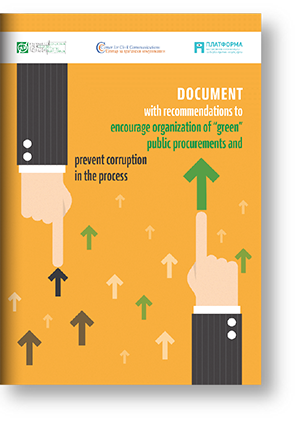Having in mind the purchase power of money that are spent annually on public procurements for state institutions to purchase goods, services and construction works for their needs and for needs in the society, it becomes clear that procurement of products that have lesser negative impact on the environment could make a significant contribution towards sustainability of the environment in which we live and work. In North Macedonia only, public procurements account for around one billion euros – money which could become an instrument for pursuing “green” policies and promoting environment quality provided that the concept of “green” procurements is applied. In the European Union, “green” public procurement is described as “a process whereby the public authorities seek to procure goods, services and works with a reduced environmental impact throughout their life cycle compared to goods, services and works with the same primary function that would otherwise be purchased”. Similar definition is used in the United States, where these are called “environmentally preferential purchasing” or “green purchasing”, which is generally defined as “purchasing a product that has a lesser or reduced negative effect or increased positive effect on human health and the environment, when compared with competitive products that serve the same purpose”.

